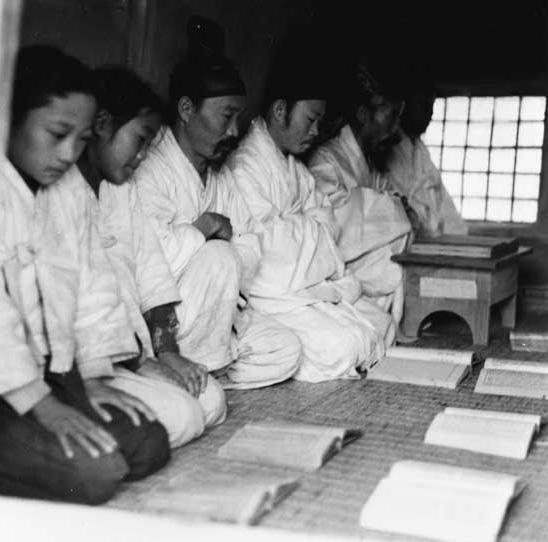Instead of Sanchon Hunjang the blogger, here's the hunjang from Daegwallyeong in Gangwon-do with his disciples in 1959.

|
Just a couple of posts below I admitted being only a hunjang (village schoolteacher of old Korea) imposter; to enjoy the teachings (and wit) of a real one, please visit the Sanchon hunjang (山村訓長), from whom you can actually learn something. I quote a quote from 山村訓長:Once upon a time, there was a village leader who had a concubine that was very bright. There was also a younger man in the village, whose company the village leader greatly enjoyed. The two were very close and didn't bother with formaility between them. One day the leader and his concubine were out in a garden pavilion, enjoying the sights of spring, when a servant arrived with a note from the young man. The note had 4 words: [日心人腹 - picture substitued with text - AL]
(☞ 日: 날 일, 心: 마음 심, 人: 사람 인, 腹:배 복.)
No matter how he examined the note, the leader couldn't make sense of it. His concubine took a glance at it and immediately started laughing. "What are you having such a hard time with? The 'day 日' is written very long so it's a long day. The 'heart 心' is missing a dot, so it is '무점심 無點心,' he hasn't had any lunch. The 'person 人' is written very small so it is '소인' or 'I.' And 'stomach 腹'is missing a line, so it is empty inside.
Categories at del.icio.us/hunjang: blogging ∙ Koreanlanguage |




Comments to note "Sanchon hunjang" (Comments to posts older than 14 days are moderated)
Write a Comment